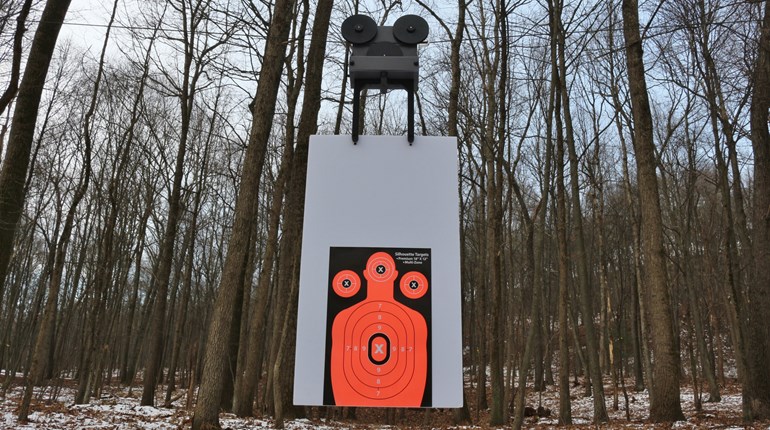
Late last year, the NRA’s Hunters’ Leadership Forum published one of its Hunter Skills Series books titled How to Talk About Hunting: Research-Based Communications Strategies that discussed how to talk to non-hunters about hunting. The book includes a set of strategies about what to say and how to say it when talking about hunting, including the most important points and concepts to communicate to increase cultural support for hunting. You wouldn’t go hunting without proper preparation; likewise it’s equally important to prepare to communicate effectively about hunting before you find yourself trying to defend it.
The strategies from the book discussed here are not just our opinions taken out of thin air—they are the result of extensive research on communications and hunting carried out in writing the book. The research entailed a review of dozens of Responsive Management studies as well as more than a hundred studies conducted by other researchers. All of the assertions made in this article are backed up by the research; the articles and reports from which they were drawn are not cited here but are fully cited in the book.
Promoting hunting is not a matter of dramatically changing most Americans’ hearts and minds; rather, it is about affirming core values that they already have about meat consumption, about conservation, about family and friends, and about ethics. Most Americans approve of hunting in general, and approval of hunting specifically for the meat is even higher, particularly because the overwhelming majority of Americans consume meat.
Tone
Perhaps the most important point to remember is to be patient when speaking about hunting—don’t lose the high ground by being rude or confrontational. Realize that most Americans care deeply about conservation but don’t know much about the role of hunting in conservation. Consider that almost half of Americans feel hunting as practiced today can cause some species to become endangered or extinct—in reality, the opposite is true!
When talking to non-hunters about hunting, focus on common values and motivations rather than just providing information about hunting. Encouraging non-hunters to think about hunting in terms of values and motivations they share with hunters will help position hunting as the best method of achieving a common goal.
When talking about hunting, it is useful to think in terms of the animal rights-animal welfare-dominionism continuum. Animal welfare is the position that most Americans hold (very few are in the animal rights position—where animals have the same rights as people—or in the dominionism position—where animals can be used in any way with no regard for them). Animal welfare means that animals can be used as long as they do not suffer undue pain and suffering, which is a position consistent with hunting. Ethical hunters may track wounded game to complete the kill; ethical hunters do not shoot in wanton waste.
With this in mind, think about how you talk about wildlife and the game you have harvested. Avoid dominionistic inflammatory expressions like “if it flies, it dies” or “if it’s brown, it’s down.” Ethical hunters show respect for wildlife and the animals they harvest. In short, hunters must not cede the middle ground of animal welfare to animal rights extremists: hunting is consistent with animal welfare and the views of the vast majority of Americans.
And don’t denigrate or disparage someone for having a different viewpoint on hunting than you do. That serves no purpose except to inflame and will not bring non-hunters into the fold. Be positive, not confrontational. A positive tone communicates openness, inclusivity and optimism. Messages delivered in a positive tone will make people more likely to hear what is being said. Positive messages are more effective than confrontational messages, as the latter are often distrusted and viewed with skepticism.
Also, don’t be afraid to talk about hunting. For many people, hunting must be demystified. Hunters should be open about the reasons why they hunt and the benefits hunting provides. Tell stories. A story is generally the best way to transmit information. Non-hunters will gain a better understanding of hunting through firsthand stories from hunters that emphasize knowledge and love of wildlife and nature.
Let’s look at the actual messages and themes effective at building more support for hunting. This starts with the benefits hunting provides to everybody, including non-hunters. As botanist and zoologist Ann Causey notes, it is reasonable for non-hunters to insist that “non-trivial reasons be given for intentional human-inflicted injuries or deaths [to animals].” Explaining the benefits of hunting is the way to supply these non-trivial reasons. This discussion starts with the benefits in general before moving to more specific benefits.
Conservation
Conservation is one area in which hunters and non-hunters agree; conservationists and environmentalists who do not hunt still share many values with hunters. Both hunters and non-hunters care about the protection of lands for future generations, and both care about the health of habitat and species populations—they are not working at cross-purposes. Therefore, inform non-hunters that regulated hunting does not cause species to become endangered or extinct, which is a reason for some non-hunters’ opposition to hunting. In fact, no wildlife species in the United States has become endangered or extinct from legal regulated hunting during modern wildlife management times. Quite the opposite: modern hunting ensures that species are not endangered.

Indeed, hunters were at the forefront of the conservation movement that brought many species back from the brink of extinction. And hunters continue to contribute to the long-term sustainability of all wildlife. This is important to discuss, as a common anti-hunting fallacy is that hunters only care about species they can hunt. We don’t have to tell you this is not the case. The truth is hunting pays for much of the funding for conservation throughout North America through their license fees and excise taxes on hunting and shooting equipment.
Some may argue with you that hunting does not pay for most conservation. However, it is less important for hunters to prove they contribute the most to conservation than to simply show they contribute substantially to conservation. In other words, hunters’ funding plays a critical role in conservation even though there are other funding sources as well. Would you criticize an NFL offensive lineman because he did his job but did not block the entire defensive line? The important point is hunting has been a vital part of the overall web of wildlife conservation in the United States.
Remember that an expansion of the conservation base benefits everyone, wildlife most of all. As state and federal agencies increasingly consider diversified sources of funding to pay for wildlife management, hunters should be prepared to welcome and encourage support from non-hunters who are similarly committed to conservation.
Wildlife Management
Hunting is one of the most important tools used by agencies to manage wildlife and habitat. Emphasize its ecological and habitat benefits. One of the most supported reasons for hunting, among those who do not initially support hunting, is if hunting “means that the overall health of the ecosystem will be better”—it’s a concept entirely dependent on properly balanced wildlife populations.
Discuss the harm that overbrowsing by deer can do to ecosystems—to the detriment of many other species, including at-risk species. In fact, deer overbrowsing can cause the extirpation of some of these at-risk species.
Food for the Table
Among non-hunters, approval of hunting is highest when it is done for the meat. In one survey, 9 out of 10 Americans approve of hunting for food. Messaging to promote hunting should capitalize on the existing strong rate of approval among Americans for this motivation for hunting.
Share game meat with others. When you do so, point out that hunting is a source of quality, organic, naturally replenished food from free-range animals. In fact, some would argue that animals that are hunted live better lives than domesticated livestock raised on a factory farm.
Hunting also supports the locavore movement, alleviating some of the worst aspects of industrial food production, such as frozen poultry being shipped overseas and processed and then shipped back to the United States. Locavore refers to locally sourced foods as a solution to the problem of “food miles,” which refers to the distance food travels from producer to consumer. This theme can unite hunters and many non-hunters. Even some ardent animal rights proponents support the idea of people hunting for their own food.
Ethics
Emphasize that hunting is highly regulated. Furthermore, the funds to pay for the enforcement of those regulations are paid for by hunters themselves. Good hunters are ethical, responsible and compassionate. Show non-hunters that hunters care about species and that they respect the wildlife they hunt. (With this in mind, when you pose with your game for later posting on social media, show some decorum. When you seem to be disrespectful, you may alienate all the non-hunters you know and harm all the hunters you know.)
Discuss fair chase. Any hunting in America that does not involve fair chase is a fringe hunting activity—not widely done and opposed by many hunters themselves. Emphasizing fair chase is very important in all communications about hunting. Also make sure your non-hunting friends know hunters seek to limit the pain and suffering of animals and that they track any game they have wounded to complete the hunt. Hunters are keenly aware of the importance of a quick, clean kill.
Discuss the fact that nearly all hunters consume the meat obtained from hunting. The meat represents a local, natural source of food. Meat sourced through hunting is often seen as more ethical than meat obtained through factory farming. Hunting that does not include the consumption of the animal is supported less than hunting where food is one of the primary reasons for hunting.
Separate hunting in general from trophy hunting. Support for trophy hunting among Americans is low relative to support for hunting for any other reason, and only 1 percent of U.S. hunters hunt primarily for a trophy. However, defining all hunting as trophy hunting is a powerful communications tool for anti-hunters—it is perceived as wanton waste that disregards the wildlife, and some people link trophy hunting with the decimation of wildlife populations. This is not to say a hunter can’t be proud of his hunting prowess and put antlers on the wall, but for most hunters this is not their main reason for hunting.
Separate poaching from hunting. Legal, regulated hunting is the antithesis of poaching. In fact, funding from hunters is what pays the salaries of game wardens and wildlife officers who fight poaching. Explain that poachers are criminals.
Know Your Audience
Acknowledge that hunting may not be for everyone. It is not necessary to make hunters out of all non-hunters; the primary focus of your discussions about hunting with non-hunters should be to garner more support for hunting. Participation may follow but is secondary to increasing cultural support for hunting.
Bridge the gap between hunters and non-hunting recreationists. While a relatively small percentage of Americans hunt, tens of millions of Americans enjoy hiking, camping and viewing wildlife. These activities benefit from the healthy habitat and wild, undeveloped areas made possible through the funding provided by hunters. These audiences need to hear that part of the hunting story.
Tactics
Frame discussions about hunting around the need to manage and maintain wildlife—it is not a question of whether people should intervene in nature, but how. If people are receptive to the need to manage wildlife, hunting can be shown as a logical way to go about doing this.
Keep in mind the difference between positive statements (which explain why something is good) and defensive statements (which explain why something is not bad). Defensive arguments can help rebut damaging claims against hunting, but offensive statements are ultimately what change minds.
Practice rebutting points made by anti-hunters using link turns (which communicate the idea, “the thing you think we cause, we actually prevent”) or impact turns (which communicate the idea, “the thing you think we decrease, we actually increase”). For example, a skillful rebuttal in defense of hunting might point out that hunting, instead of leading to diminished wildlife populations, actually funds wildlife conservation that enhances wildlife.

Stay on point and remain focused on relevant topics. Hunting opponents will sometimes intentionally make comments to derail the discussion; it is not necessary to humor every nonsensical or outlandish claim with a thoughtful response. So be prepared to reframe discussions or debates about hunting if anti-hunters lead the conversation astray.
Finally, communicate clearly that conservation requires a pragmatic focus on wildlife populations as a whole, not selective outrage over certain animals or events. Do not let anti-hunters frame discussions about hunting in terms of a narrow definition of morality. Hunting is part of a holistic approach to wildlife where individual animals die but the species as a whole benefits.
Resonance
When talking about hunting, use the phrase “legal, regulated hunting.” It is well received because it separates ethical hunting from poaching. It conveys that hunting is carefully managed. Employ other words and phrases known to resonate; for example, use the phrase “healthy wildlife populations.”
Ecological reasons for hunting are well supported. Use terms that show the ecological benefits of hunting. Many Americans have a high concern for habitat in the United States. Talk about healthy habitat and how hunting plays a role in protecting it.
When talking about huntable wildlife, the term “game” may turn some people off by appearing to trivialize the animal (again, note the importance of avoiding terms and actions that are seen as dominionistic). The term “wildlife” often can substitute.
One concept many Americans respond well to is “does not use taxpayer dollars.” There is much concern about taxes and government spending in today’s world. The fact that many fish and wildlife agencies do not use general taxes will be well received; communications should emphasize that “general taxes are not used” by many fish and wildlife agencies.
Talk to the people you know about hunting. Don’t shy away from a discussion that some may find uncomfortable. Let them know the many good reasons why you hunt and the many great benefits to conservation and society that hunting provides. Follow these simple guidelines outlined above to help you in your discussions. You don’t want to just win an argument; you want to win people over.



































